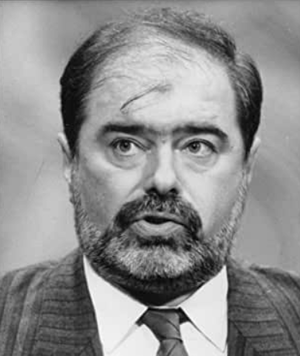Heinrich Deist
( economist) | |
|---|---|
 | |
| Born | 1902 Wilhelmshaven |
| Died | 8 March 1964 (Age 61) Merano, Italy |
Cause of death | |
| Nationality | German |
German politician | |
Heinrich Deist was a German politician, belonging to the market-friendly wing of the Social Democratic Party.
Career
He went to the University of Cologne for further study in 1935 after two years in business, and received degrees in business administration and public accountancy.
Starting in 1941 he worked as an accountant for private companies.
After the war, Deist entered politics as legal counsel for trade unions in the steel industry. In 1949 he was first rejected and then named by the Allies a trustee of the Ruhr iron and steel industries. In 1952 he was appointed a German representative in the European Coal and Steel Community (Schuman Plan).[1],before he was elected to the Bundesrat in 1953
He became the SPD's primary economic expert and worked hard to move the SPD away from wholesale nationalisation and class-war attacks on private property. At the SPD's 1958 Stuttgart conference Deist put forward his plan for freiheitliche Ordnung der Wirtschaft (freedom-loving organisation of the economy). Similar to the concept of the social market economy, this proposal included indirect controls of budgetary planning and has been called "a market economy of the left". It was passed by a huge majority of delegates[2]. In a speech to the conference, Deist said:
We should not give ourselves up to the illusion that through transfer into public ownership the problem of dependence and bondage of the worker in the factories is already solved. ... And if we ask our English comrades how the worker problem and codetermination of the worker in the nationalised industries has worked out, then we will hear from them that his problem is not solved through nationalisation alone.[3]
Deist was the principal author of the SPD's 1959 Godesberg Program, which committed the party to welfare capitalism in place of its traditional Marxism.[4] Deist explained in an article that the experience of Communism and Fascism had taught the SPD the dangers of a huge state bureaucracy. Public controls and the distribution of economic power were preferable to socialisation: "A free order demands variety in every respect. Its decisive criteria are therefore pluralism, decentralisation, autonomy".
Event Participated in
| Event | Start | End | Location(s) | Description |
|---|---|---|---|---|
| Bilderberg/1960 | 28 May 1960 | 29 May 1960 | Switzerland Bürgenstock | The 9th such meeting and the first one in Switzerland. 61 participants + 4 "in attendance". The meeting report contains a press statement, 4 sentences long. |
References
- ↑ http://www.nytimes.com/1964/03/08/heinrich-deist-economist-dead.html
- ↑ Anthony James Nicholls, Freedom with Responsibility: The Social Market Economy in Germany, 1918-1963 (Oxford: Clarendon Press, 2000), pp. 369–370
- ↑ Harold Kent Schellenger, The SPD in the Bonn Republic: A Socialist Party Modernizes (Springer, 2012), p. 99.
- ↑ Heinrich Deist, 'Gemeineigentum in der freiheitlichen geordneten Wirtschaft', Neue Gesellschaft, 6 (September–October 1959), p. 356, quoted in H. Kent Schellenger, Jr., 'The German Social Democratic Party after World War II: The Conservatism of Power', The Western Political Quarterly, Vol. 19, No. 2 (Jun., 1966), p. 260.